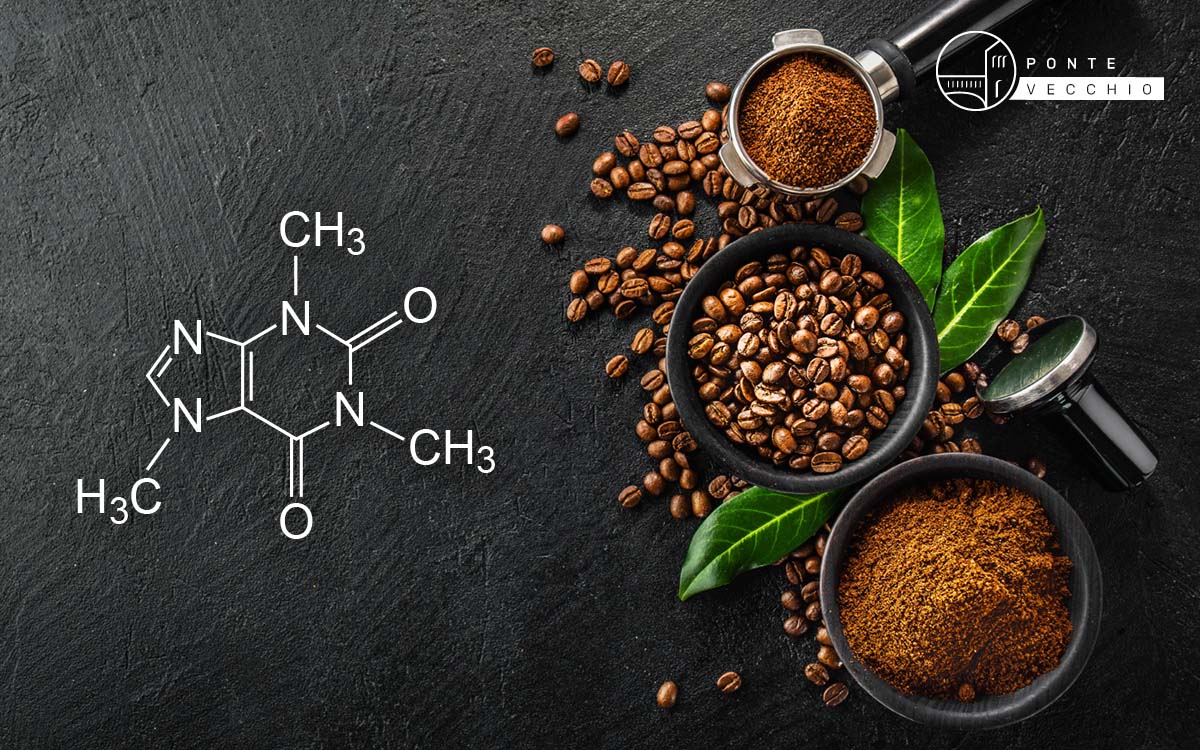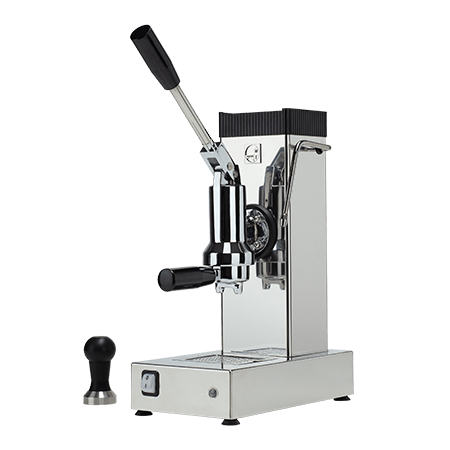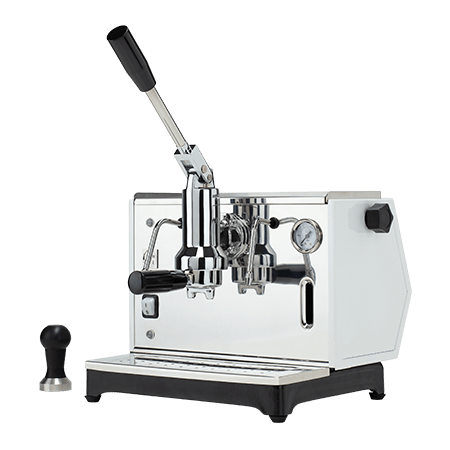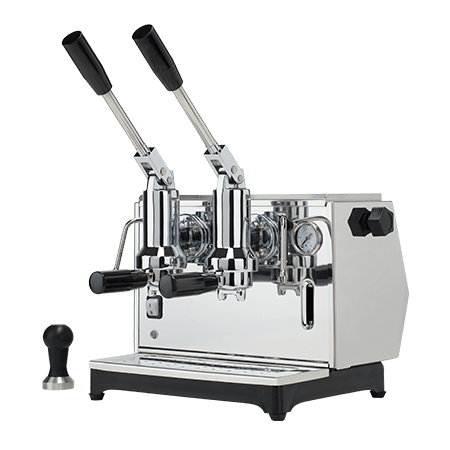A bane and delight for coffee lovers, caffeine is a substance with many beneficial properties for the body that can, however, have a negative impact on sleep quality. In fact, the best known and most exploited effects of caffeine are its energising ones, which, on the other hand, can impede the laced sleep-wake cycle.
But how do you manage caffeine intake correctly? How much coffee can be consumed per day to get a good night’s sleep?
To fully enjoy the pleasure of coffee without worries, it is essential to fully understand what caffeine is and how it interacts with our body. In this article, we will explore in detail all the facets of this precious plant alkaloid and its many functions.
Meanwhile, know that moderate caffeine consumption does not affect sleep quality. On the contrary, we who know about coffee can state with certainty and based on numerous scientific studies that caffeine has several benefits for the body: it stimulates memory, improves sports performance, gives energy and has a positive effect on mood.
What is caffeine
Known for its energising and stimulating properties, caffeine is a natural alkaloid found in coffee, cocoa and tea plants.
In the coffee plant, it is one of the most present molecules and, in nature, has a very specific function: it drives herbivorous animals away from the plant.
Its energising and protective properties are activated even when small quantities are ingested. For this reason, the substance is effective even in small doses, both in plant protection and on the human organism.
Its effects on the human body are due to its special molecular structure, which is able to stimulate receptors in the central nervous system.
As we have seen, it is extracted from certain plants in particular, but there are many drinks on the market with caffeine added. In small doses, caffeine has several beneficial properties. Given its ability to interact quickly and intensely with the body, however, it is essential to be aware of its effects and not to abuse it, in order to avoid unpleasant adverse consequences.
Caffeine acts as a stimulant in various biological systems, affecting the central nervous system, the cardiovascular system, gastric acid secretion and metabolism.

What caffeine actually does
Caffeine is a lipophilic molecule that interacts quickly with the body.
When you take a caffeine drink, be it coffee, tea, chocolate or an energy drink, it starts to take effect in just twenty minutes. Its absorption takes place in the intestine, from which it quickly reaches the blood. Through the bloodstream it reaches the liver, where it is metabolised.
What does caffeine do to our bodies? What is its stimulating effect due to?
The particular molecular structure of caffeine allows it to easily penetrate through the blood-brain barrier, from where it reaches the neurons.
In the brain it replaces adenosine, the neurotransmitter that regulates the feeling of tiredness, and blocks its action. As a result, when drinking coffee, the body does not feel sleepy or want to rest.
In addition to inhibiting the regular activity of receptors deputed to relaxation, it stimulates the production of adrenalin and noradrenalin in the blood. The effects of this mechanism are well known: you feel increased arousal, you do not feel tired, your concentration increases, your pulse quickens and your blood pressure rises.
Caffeine also has an effect on improving mood, mediated by another neurotransmitter, dopamine. In some neurons, adenosine acts on dopamine receptors, preventing their binding and thus blocking their effect. Again, caffeine, by preventing adenosine from binding to these receptors, reflexively increases the action of dopamine.
This would also explain caffeine’s positive effect on the prevention and progression of Parkinson’s disease, a condition linked to dopamine deficiency.
Pleasant sensations, however, occur at low doses of caffeine (below 500 mg): at higher doses, feelings of agitation, restlessness, anxiety, tremors and insomnia tend to prevail. These are reversible effects due to excess caffeine, which disappear when consumption is reduced.
There is also an adaptation mechanism in our brains whereby, if the adenosine receptors are continuously occupied by caffeine, the body produces more of it so that adenosine can bind. When this happens, the usual dose of coffee is no longer enough, and we have to increase it to get the same effect. Again, this is a reversible mechanism by reducing caffeine consumption.
The concentration of caffeine changes depending on how the coffee is prepared
In many cases, it is recommended not to exceed three cups of coffee a day in order to limit the percentage of caffeine in the body. However, this is too general and in no way corresponds to reality.
The concentration of caffeine in coffee is not the same for every type of coffee but varies mainly according to the method of preparation and the quantity and quality of powder used.
In particular, unfiltered coffee, cuccumella (the typical coffee machine of Naples), traditional mocha and the gravimetric percolation extraction method have a higher caffeine content; espresso has a medium content; soluble coffee has the lowest caffeine level.
The roasting of coffee strongly influences the caffeine concentration. During the roasting process, different coffee varieties are mixed, each with its own caffeine percentage. Coffea robusta beans are the most concentrated, while coffea arabica is more intense.
Benefits of caffeine
The beneficial effects of caffeine are extolled by all lovers of espresso and energy drinks and relate to increased energy, improved brain activity and increased alertness. These results are real and also medically confirmed, especially for healthy individuals who are not taking drugs incompatible with the molecule.
What effects does caffeine have on our bodies?
- thanks to its antioxidant properties, it reduces the risks of Alzheimer’s and Parkinson’s disease;
- is a stimulant for the brain, which strengthens memory and improves concentration;
- gives energy and a powerful feeling of well-being;
- helps with slimming diets by stimulating the metabolism;
- improves sports performance;
- relieves tiredness and the need to rest;
- stimulates basal metabolism;
- promotes diuresis.
We at Ponte Vecchio know about coffee; if you want to drink good coffee you should do it with the right machine, discover the right coffee machine for you.
Duration of the effect of caffeine
If you want to know after how long caffeine takes effect and how long it will make you feel fit, here’s your answer.
From coffee consumption to its effect on the body you will have to wait about half an hour, as caffeine enters the bloodstream within 25-30 minutes after consumption. It reaches its plasma peak in the adult body on average 45 minutes after consumption and remains there for about 3-4 hours.
It must be taken into account that it takes several hours for caffeine to be cleared from the bloodstream. To reduce it by 50%, it takes six to eight hours.
Another interesting phenomenon is the accumulation effect, i.e. it does not matter at what time you last drank your coffee but how much coffee you consumed during the day. It is precisely the overall consumption of coffee that determines the amount of caffeine in your system and the duration of the caffeine effect.
Negative effects of caffeine
Despite its indisputable beneficial effects, caffeine is certainly not without its contraindications, which are:
- overexcitement;
- risk of hypertension;
- tachycardia;
- tension;
- irritability;
- headache;
- difficulty sleeping;
- alteration in the metabolism of certain foods;
- altered metabolism of specific drugs;
- stomach acidity, gastroesophageal reflux, gastritis, ulcer;
- tremor and agitation.
During pregnancy, coffee consumption should be absolutely limited; to avoid harmful effects on the organism, coffee should not be consumed together with alcohol.
Relationship between caffeine and sleep
One of the benefits of caffeine – its energising power – in some people can interfere with sleep quality, causing insomnia and difficulty falling asleep.
But how much truth is there in this? How much does caffeine affect sleep? Does coffee make you sleepy or not? How does caffeine interfere with the sleep-wake cycle?
Many people are convinced that caffeine interferes with the quality of sleep. In particular, it is commonly believed that drinking coffee in the late afternoon causes insomnia or otherwise reduces sleep hours. In addition, excess caffeine may lead to more interruptions during sleep hours.
The veracity of these claims is confirmed by many scientific studies. However, there are also some clarifications to be made in this respect. First of all, it seems that it is not the time of the last coffee that makes falling asleep more complex, but the amount of coffee consumed during the day (the accumulation effect mentioned above).
In addition, according to a scientific study by the Institute for Scientific Information on Coffee (ISIC) on the relationship between sleep and caffeine, many people with insomnia tend to abuse coffee during the day, worsening, in fact, their sleeping condition.
Caffeine is not only found in coffee
As we mentioned, although the name may be misleading, caffeine is found in coffee beans, but also in tea, chocolate and cocoa drinks. Even Yerba mate, the South American tea famous for its slimming properties, contains a high dose of caffeine.
You may be surprised to learn, however, that decaffeinated coffee also contains caffeine. Of course, its concentration is reduced (between 15 and 30 %), but during the decaffeination process only part of it is removed.
The molecule is also an integral part of energy drinks such as RedBull and is one of the basic ingredients in cola drinks.
There are also many drugs containing caffeine, including some painkillers, medicines prescribed for colds and allergy medications. Given its effects on metabolism, it is commonly used in the preparation of weight-loss supplements.
Discover the Pontevecchio machines: quality coffee, well-being guaranteed
Now that you know what coffee is and what the benefits of caffeine are, remember not to abuse it. Indeed, coffee is a powerful energiser, stimulates mental faculties, concentration and memory, improves performance and brightens the mood. On the other hand, excessive consumption may adversely affect the circadian sleep-wake rhythm, causing insomnia and constant awakenings during rest.
Therefore, the ideal compromise for the well-being of the organism is to drink less coffee, but of excellent quality.
If you want to drink good coffee, you should do so with the right machine; discover the right coffee machine for you on our website.
Pontevecchio lever coffee machines are artfully crafted appliances, made of durable and valuable materials, selected to last a lifetime. Their mechanism preserves all the organoleptic characteristics of the coffea beans, fully respecting the complexity of the aromas.
For this reason, you will not need to consume an infinite number of cups per day, but just one espresso will be enough to satisfy your coffee craving and your need for energy.








